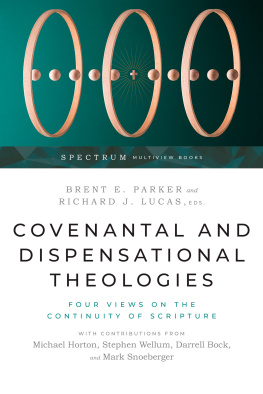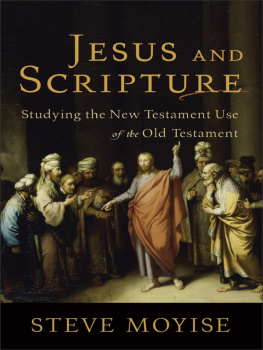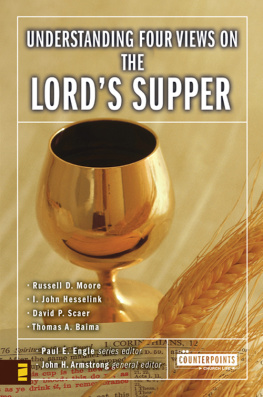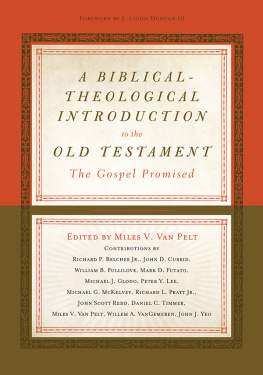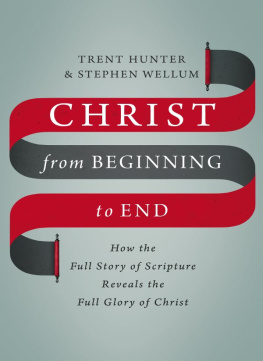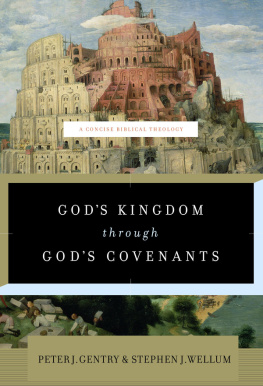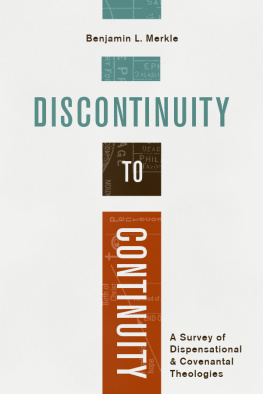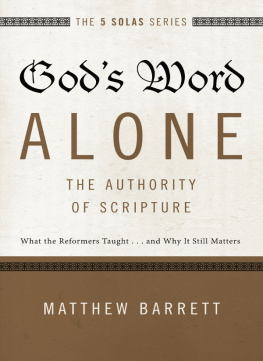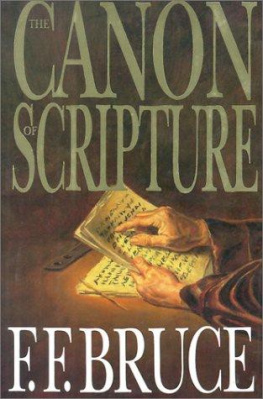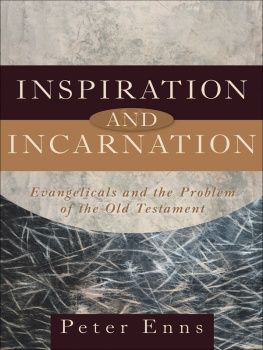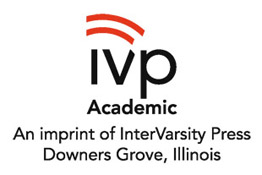Sommaire
Pagination de l'dition papier
Guide
SPECTRUM MULTIVIEW BOOKS
COVENANTAL AND DISPENSATIONAL THEOLOGIES
FOUR VIEWS ON THE
CONTINUITY OF SCRIPTURE
BRENT E. PARKER
and RICHARD J. LUCAS, EDS.
InterVarsity Press
P.O. Box 1400, Downers Grove, IL 60515-1426
ivpress.com
2022 by Brent E. Parker and Richard J. Lucas
All rights reserved. No part of this book may be reproduced in any form without written permission from InterVarsity Press.
InterVarsity Press is the book-publishing division of InterVarsity Christian Fellowship/USA, a movement of students and faculty active on campus at hundreds of universities, colleges, and schools of nursing in the United States of America, and a member movement of the International Fellowship of Evangelical Students. For information about local and regional activities, visit intervarsity.org.
Scripture quotations, unless otherwise noted, are from The Holy Bible, English Standard Version, copyright 2001 by Crossway Bibles, a division of Good News Publishers. Used by permission. All rights reserved.
The publisher cannot verify the accuracy or functionality of website URLs used in this book beyond the date of publication.
Cover design and image composite: David Fassett
Image: wooden spheres and ring MirageC / Moment / Getty Images
ISBN 978-1-5140-0113-4 (digital)
ISBN 978-1-5140-0112-7 (print)
This digital document has been produced by Nord Compo.
To Robert and LaDeane Parker
My parents who first instilled in me an interest in prophecy,
end times, and the future of Israel while also raising me
to believe and trust in Jesus Christ first and foremost.
To Tina Lucas
Who the Lord has graciously provided as a dedicated
and loving wife and whose companionship I cherish above all others.
May God be pleased to allow our marriage to reflect
the gospel of Jesus Christ for many more years.
EPHESIANS 5:31-32
Acknowledgments
We would like to thank each contributorMichael Horton, Steve Wellum, Darrell Bock, and Mark Snoebergerfor their thoughtful and provocative essays and for the collegial and irenic spirit that is represented in their response essays. Working with each contributor was a joy, not least in their timely responses to inquiries and suggested revisions. They were easy to collaborate with. Moreover, there were some unfortunate delays during the course of the project, and the contributors were very patient throughout as these circumstances were resolved. We are convinced that the quality of these contributors and the essays that they wrote will make this book a standard resource on the topic for many years to come.
We would also like to thank our IVP editor, Dan Reid, who initiated this project with us before his retirement, and we also extend our gratitude to David McNutt, who stepped in after Dan and assisted in bringing this project to completion. David made helpful observations and suggestions and was instrumental in guiding us along.
I (Brent) would like to thank my wife Kandace for her love, encouragement, and support during the long process of working on this project. Our four young children (Evan, William, Andrew, and Annette) have much energy, and she kept them busy at times so I could focus my efforts to this work. Kandace and the children are sweet reminders of Gods favor and blessing in my life.
At the end of several years of working to get this book published, I (Richard) would like to express loving appreciation to my family. My wife Tina has not only been supportive and encouraging for me to pursue this project but she has been a dialogue partner about the subject matter as we have traveled this theological journey together over the years. Our four children are excited about dads book coming out, even though they would have rather we had chosen a more kid-friendly title!

Introduction to Covenantal and Dispensational Theologies
Four Views on the Continuity of Scripture
BRENT E. PARKER AND RICHARD J. LUCAS
One of the most complex and difficult issues for Bible readers, particularly those who acknowledge the Bible as the Word of God with one divine author, is understanding how the whole canon fits together. Does the Bible have a unified and cohesive plan? Can a unity be maintained given the theological diversity within Scripture? For evangelical Christians who accept that God is the ultimate author of Scripture, the Bible being the work of human authors through the operation of the Holy Spirit as they freely wrote what God superintended, Scripture does have an overarching metanarrative and unified message and plan that is disclosed through the progress of revelation. Scripture consists of a central storyline that unfolds over time as the plot develops through history, often through surprising twists and turns. The biblical authors build on and add to what earlier authors wrote even as earlier authors sometimes projected the wonders to come (1 Pet 1:10-12). Given the nature of Scripture as progressive revelation, the task of biblical theology is not optional; careful Bible readers must examine how the individual parts of the Bible fit within the whole and seek to explain the theological relationship between earlier and later portions of Scripture.
Nevertheless, how one accounts for the individual biblical texts, observes the development of the narrative and various themes at different stages in the canon, and goes about formulating theological conclusions, all the while seeking to do justice to the whole Bible and the parts, is a difficult theological task and one that is subject to much debate. Particularly with the coming, resurrection, and ascension of Jesus Christ, and the descent of the Holy Spirit, the interpreter must decide what Christ and the newness that results from his work on the cross means with respect to past revelation and how and to what extent the Old Testament (OT) is fulfilled. Not surprisingly, evangelicals propose systems of theology that they argue best reflect the whole Bible, given how it is structured and interwoven. These systems of theology differ significantly, especially in the areas of ecclesiology (not least of all in church practices such as baptism) and eschatology (e.g., does God still have a plan for national, political Israel?). But such debates are inevitable for any serious and thoughtful reader of the Bible as he or she must think through the storyline of Scripture, put the Bible together, and come to conclusions regarding the progress of revelation and the relationship between OT and New Testament (NT). There is agreement that biblical theology is critically important, but the actual doing or practice of biblical theology varies, which in turn leads to very different theological systems and conclusions. In fact, disagreement about what the whole Bible says regarding the kingdom of God, the nature of the church, end times, how the OT law relates to believers in Christ, particularly the Sabbath, and the meaning of baptism, are just some of the issues where competing biblical-systematic theological conclusions have led to the formation of different denominations. The canon of Scripture demands such reflection, and evangelicals have come to different conclusions, advocating and promoting covenantal and dispensational theologies among other formulations for how the Bible is put together.

